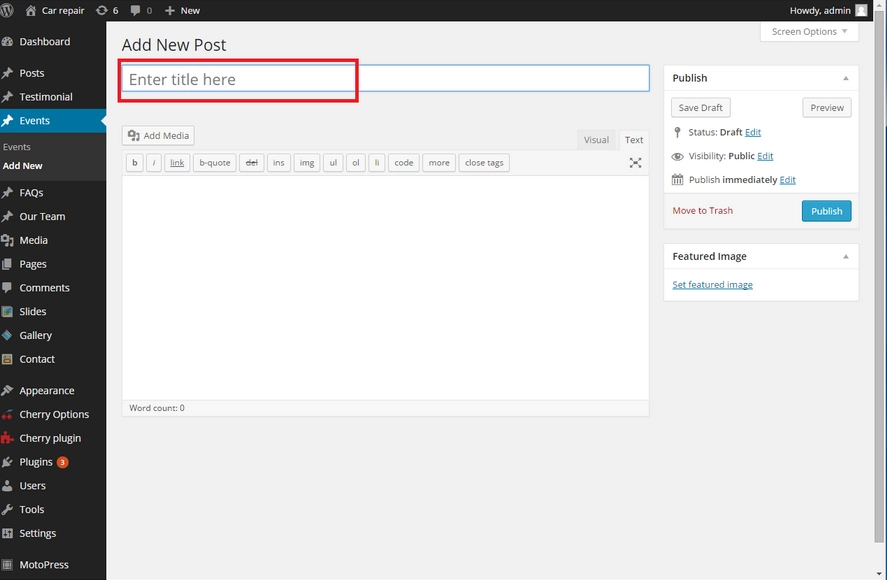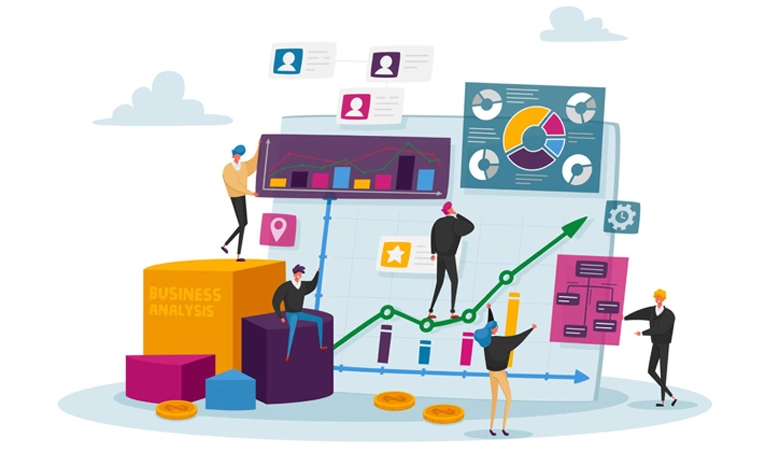Table of Contents
What is Funnel Hacking?
Funnel hacking is a strategic approach businesses use to analyze and model successful sales funnels deployed by competitors or industry leaders. Essentially, it involves reverse engineering the steps of a successful sales process to understand its components and replicate its effectiveness within your marketing strategy. Funnel hacking allows businesses to gain valuable insights into consumer behaviour, optimize their sales processes, and ultimately drive more conversions by dissecting the elements of high-converting funnels.
Define Funnel Hacking and Its Core Concept
At its core, funnel hacking revolves around reverse engineering successful sales funnels. It entails meticulously examining the various stages of a customer’s journey, from initial awareness to final conversion, and understanding the strategies employed at each step. Businesses can glean invaluable insights into consumer psychology, purchasing behaviour, and effective marketing tactics by dissecting the actions that lead to a sale or desired outcome. This process enables companies to replicate and adapt proven strategies to their products or services, leading to improved sales performance and revenue growth.
Briefly Explain the Traditional Sales Funnel Stages
The traditional sales funnel stages, namely awareness, interest, decision, and action, represent a potential customer’s sequential steps before purchasing. Funnel hacking involves dissecting each stage to understand the strategies and tactics employed to move prospects from one stage to the next. In the awareness stage, businesses aim to capture the attention of their target audience and create brand recognition. Interest is sparked by engaging content or compelling offers, leading to the decision stage, where prospects evaluate their options. Finally, the action stage prompts the prospect to purchase or take the desired action, completing the funnel.
Why Should Your Business Use Funnel Hacking?
Funnel hacking offers numerous benefits to businesses seeking to improve their marketing strategies and boost sales performance. One of the key advantages is the ability to achieve faster results by learning from successful models. Businesses can bypass the trial-and-error process by analyzing and replicating proven sales funnels, accelerating their path to success. Additionally, funnel hacking reduces the risk and experimentation time of developing new marketing strategies. Instead of starting from scratch, companies can leverage existing frameworks and tailor them to their needs, saving time and resources.
Highlight the Benefits of Faster Results by Learning from Successful Models
By adopting funnel-hacking strategies, businesses can expedite their path to success by learning from the successes and failures of others. Funnel hacking allows companies to leverage proven models and techniques instead of embarking on a lengthy trial-and-error process to develop effective marketing strategies. This accelerates the time-to-market for new campaigns and enhances the likelihood of achieving desired outcomes. By studying successful sales funnels, businesses can identify patterns, strategies, and tactics that resonate with their target audience, enabling them to optimize their marketing efforts for faster and more efficient results.
Explain How It Reduces Risk and Experimentation Time
Another significant advantage of funnel hacking is its ability to reduce risk and business experimentation time. Rather than starting from scratch and testing unproven strategies, funnel hacking allows companies to leverage existing frameworks already validated in the market. By analyzing successful sales funnels deployed by competitors or industry leaders, businesses can gain valuable insights into what works and what doesn’t, minimizing the risk of failure. This streamlined approach enables companies to allocate their resources more efficiently, focusing on tactics and techniques more likely to yield positive results.
Mention Gaining Valuable Customer Insights Through Competitor Analysis
One often overlooked benefit of funnel hacking is the opportunity to gain valuable customer insights through competitor analysis. Businesses can uncover valuable information about their target audience’s preferences, behaviours, and pain points by studying competitors’ sales funnels. This deeper understanding allows companies to tailor their marketing strategies to better meet their customers’ needs, ultimately leading to increased engagement and conversions. Additionally, competitor analysis can reveal gaps or opportunities in the market that businesses can exploit to gain a competitive edge.
How Does Funnel Hacking Work in Practice?
Break Down the Process Into Steps
Funnel hacking involves several key steps to dissect and replicate successful sales funnels effectively. Firstly, businesses must identify competitors or industry leaders whose sales funnels they wish to analyze. Once identified, the next step is to thoroughly examine and explore these funnels, closely examining elements such as landing pages, email sequences, offers and calls to action. This process involves reverse engineering the steps taken by prospects from initial contact to final conversion.
Briefly Discuss Ethical Considerations
While funnel hacking can provide valuable insights and competitive advantages, it’s essential to approach this strategy ethically. Businesses should strive to learn from competitors without directly copying or infringing on intellectual property rights. Instead, focus on understanding the underlying principles and techniques that make these funnels successful, then adapt and customize them to align with your brand and audience. Ethical funnel hacking emphasizes innovation, creativity, and adding value to the customer experience rather than simply replicating what others have done.
What Can You Learn From Analyzing a Competitor’s Funnel?
Discuss Analyzing Elements Like Content Types
Analyzing a competitor’s funnel offers insights into various elements crucial for success. Content types play a significant role in engaging and nurturing leads throughout the funnel. By examining the types of content used in competitors’ funnels, businesses can identify what resonates most with their target audience. Whether blog posts, videos, webinars, or downloadable guides, understanding the effectiveness of different content formats can inform your content strategy and lead generation efforts.

Explain How to Identify Traffic Sources
Understanding where your competitors’ traffic comes from is essential for optimizing your marketing efforts. By analyzing traffic sources such as search engines, social media platforms, and referral sites, businesses can uncover opportunities to improve their visibility and reach their target audience more effectively. Additionally, identifying the lead magnets competitors use can provide valuable insights into the types of incentives that resonate with potential customers and drive conversions.
Is Funnel Hacking Just Copying Another Company’s Funnel?
Address the Misconception of Copying vs. Adapting
Contrary to popular belief, funnel hacking is not blindly copying another company’s funnel. Instead, it’s about learning from successful models and adapting them to suit your unique brand and audience. While drawing inspiration from competitors is essential, simply replicating their strategies without understanding the underlying principles is unlikely to yield sustainable results. Funnel hacking encourages businesses to innovate, experiment, and continuously optimize their sales funnels based on real-world data and insights.
Emphasize Tailoring the Funnel to Your Specific Brand
Every business is unique, with its brand identity, value proposition, and target audience. Therefore, it’s crucial to tailor your sales funnel to align with your specific brand and audience preferences. While funnel hacking provides valuable insights and best practices, it’s essential to customize these strategies to reflect your brand’s personality and values. By infusing your funnel with authentic storytelling, compelling visuals, and personalized messaging, you can create a more engaging and memorable experience for your customers.
What are Some Examples of Successful Funnel Hacking?
Briefly Showcase Case Studies
Several businesses have successfully implemented funnel-hacking strategies to achieve remarkable results. For example, Company X doubled its online sales within six months by analyzing and optimizing its sales funnel based on competitor insights. Similarly, Company Y increased its email subscriber base by 50% by adopting proven email marketing strategies gleaned from funnel hacking. These case studies highlight the tangible benefits of funnel hacking and demonstrate its potential to drive significant growth and ROI for businesses.
Focus on Results and Lessons Learned
The success stories of businesses that have embraced funnel hacking underscore the importance of continuous learning and adaptation in today’s competitive marketplace. Businesses can achieve sustainable growth and outperform their competitors by studying successful models, testing new strategies, and iterating based on real-world data. The key takeaway from these examples is that funnel hacking is not a one-time endeavor but rather an ongoing process of optimization and refinement.
What Tools and Resources Can Help You With Funnel Hacking?
Briefly Introduce Helpful Tools
Several tools and resources can assist businesses in their funnel hacking endeavors. Tools such as SEMrush, Ahrefs, and SimilarWeb provide valuable insights into competitor traffic sources, keywords, and backlink profiles. Additionally, funnel building platforms like ClickFunnels and Leadpages offer intuitive drag-and-drop interfaces for creating and optimizing sales funnels. Furthermore, educational resources such as online courses, webinars, and blogs provide valuable insights into funnel-building best practices and industry trends.
Mention Resources for Learning
For those looking to deepen their understanding of funnel hacking and sales funnel optimization, there are numerous resources available. Websites like Funnel Hacker TV and ClickFunnels’ Funnel Hacking Live conference offer valuable insights from industry experts and successful entrepreneurs. Books like “DotCom Secrets” by Russell Brunson and “Expert Secrets” provide practical strategies and actionable advice for building high-converting sales funnels. By investing in continuous learning and education, businesses can stay ahead of the curve and maximize their funnel hacking efforts.
Common Mistakes to Avoid When Funnel Hacking
Discuss Potential Pitfalls
While funnel hacking can yield significant benefits, businesses should avoid several common mistakes. One such mistake is blindly copying competitors’ funnels without understanding the underlying principles or rationale behind their success. Instead of merely replicating tactics, focus on understanding the psychology of your target audience and tailoring your funnel accordingly. Additionally, neglecting to test and iterate on your funnel can limit its effectiveness over time. Data-driven testing and optimization are essential for identifying areas of improvement and maximizing conversions.
Emphasize the Importance of Data-Driven Testing
Data-driven testing is a cornerstone of effective funnel hacking. By collecting and analyzing data on key metrics such as conversion rates, click-through rates, and customer lifetime value, businesses can gain valuable insights into the performance of their sales funnels. A/B testing elements such as headlines, calls to action, and pricing strategies can help identify which variations resonate most with your audience. Furthermore, ongoing monitoring and optimization based on real-time data ensure that your funnel remains relevant and effective in a constantly evolving market landscape.
How to Get Started With Funnel Hacking for Your Business
Provide a High-Level Roadmap
For businesses looking to embark on their funnel hacking journey, starting with a clear plan of action is essential. Begin by identifying your primary competitors and conducting thorough research into their sales funnels and marketing strategies. Analyze key elements such as messaging, offers, and conversion tactics to uncover insights and opportunities for optimization. Next, develop a strategy for implementing these insights into your sales funnel, considering the need for ethical and personalized approaches. Finally, continuously monitor and iterate on your funnel based on real-world data and feedback to drive continuous improvement.
Briefly Mention Considerations
When getting started with funnel hacking, it’s essential to consider factors such as budget, resources, and time investment. While funnel hacking can yield significant returns, it requires a commitment of time and resources to conduct thorough research, analysis, and implementation. Additionally, businesses should prioritize ethical practices and avoid infringing on competitors’ intellectual property rights. By approaching funnel hacking strategically and responsibly, businesses can maximize their chances of success and achieve sustainable growth in the long term.
What are the Long-Term Benefits of Funnel Hacking?
Discuss How Funnel Hacking Can Lead to Continuous Improvement
One of the most significant long-term benefits of funnel hacking is its potential to drive continuous improvement in your marketing strategy. By adopting a data-driven approach and iterating based on real-world insights, businesses can optimize their sales funnels for maximum effectiveness over time. This iterative process allows companies to stay ahead of competitors, adapt to changing market conditions, and meet the evolving needs of their target audience. Furthermore, funnel hacking fosters a culture of innovation and experimentation, encouraging businesses to test new ideas and strategies to stay competitive in today’s dynamic marketplace.
Mention the Value of Building a Knowledge Base
As businesses engage in funnel hacking and accumulate insights into what works and what doesn’t, they build a valuable knowledge base that can inform future marketing efforts. By documenting successes, failures, and key learnings, businesses create a repository of best practices and strategies that can be leveraged for future campaigns. This institutional knowledge enables companies to make more informed decisions, streamline their marketing processes, and drive greater efficiency and effectiveness in their overall marketing strategy.
In conclusion, funnel hacking is a powerful strategy that offers businesses a systematic approach to analyzing and optimizing their sales funnels for maximum effectiveness. Companies can achieve significant growth and competitive advantage by learning from successful models, adapting proven techniques, and continuously testing and iterating on real-world data.














Leave a Reply